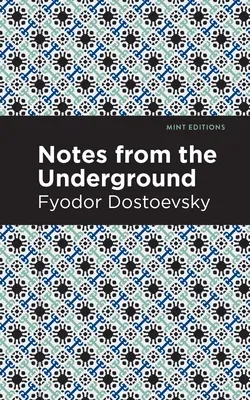"It may seem paradoxical to speak of such insights as liberating, or to
find in the Underground Man's impassioned rejection of rational
humanitarianism a call to arms. Yet each age we live through as
individuals demands a certain kind of book- just as each era thieves the
last with a magpie's lust for the gewgaws of thought. Oddly enough, now
I come to look at Notes again- and examine it in the round- I discover
that my revised impression of it as a text at once jejune and cynical,
callow as well as wise, is not, perhaps, too far from reality." -Will
Self
""(Dostoevsky)... is the man more than any other who has created modern
prose, and intensified it to its present-day pitch." -James Joyce
**Notes from the Underground is Fyodor Dostoevsky's ninth novel, and
considered to be one of the first examples of the existential novel. In
this radically inventive work, an alienated former minor administrator
in nineteenth-century Russia has broken away from society and withdrawn
into an underground identity.**With its piercing insight into political,
social, and moral issues, this classic is one of the most provocative
work of literature ever written.
In the first half of the novel, the unnamed narrator, a cynical recluse
in 1860's St. Petersburg, attacks the ideologies of inherent laws of
self-interest; he is crippled with self-loathing, and bound by his
contempt of certain political attitudes of his day. He welcomes any
psychic or physical pain in his life as he believe it rails against the
complacency of modern society. The second half, entitled "Apropos of the
Wet Snow", the narrator relates his alienated relationships he
experiences with others, including old school chums and a prostitute
named Liza, who is only demeaned in his misanthropic mind. A singular
document of the depravity of human consciousness, this is one of the
most powerful pieces of literature ever written.
With an eye-catching new cover, and professionally typeset manuscript,
this edition of Notes from the Underground is both modern and
readable.


